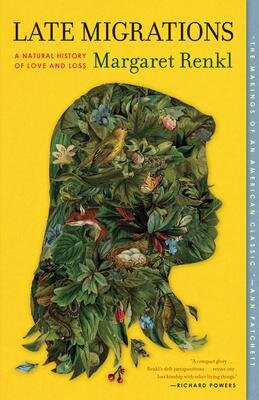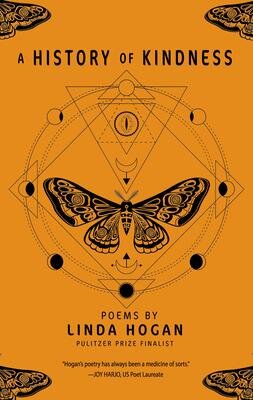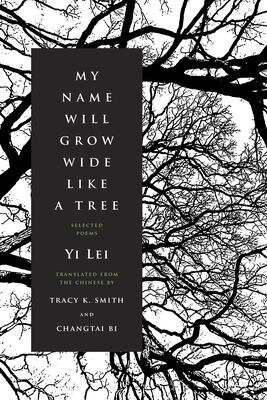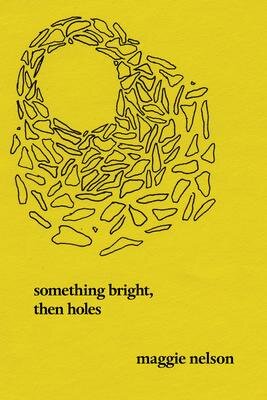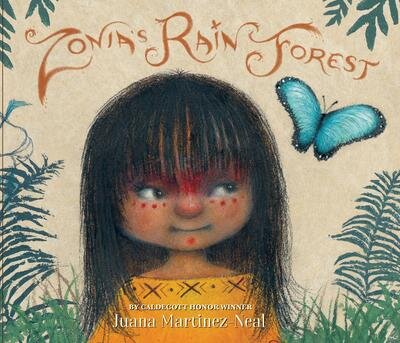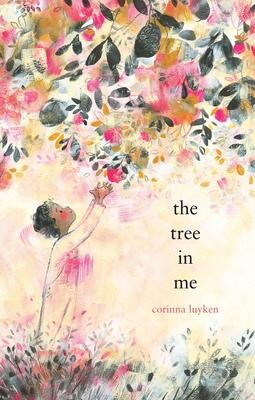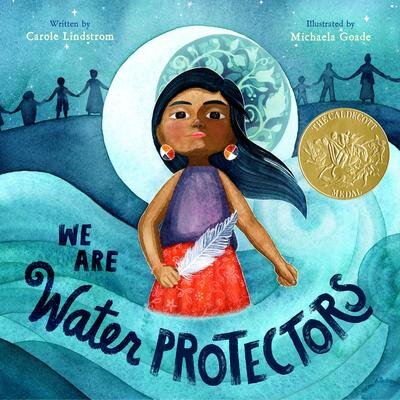16 Books to Read with Your Feet in the Grass for Earth Day
Earth Day isn’t until tomorrow, but in a year when parks and other outdoor spaces became our new living rooms it feels especially important to celebrate! We’ve rounded up some of our favorite new (or new-ish) titles about the natural world, with books touching on climate change, foraging, colonization and nature, mushrooms, and everything in between. If you love these books, click here to see a full list of recommendations to take on your next foray into outdoor reading!
Nonfiction
World of Wonders by Aimee Nezhukumatathil
Nothing has made me appreciate the importance of our relationship with nature like months of being locked up in quarantine. Aimee’s collection of charming vignettes based in the natural world is filled with the beautiful prose of a poet examining how we can decolonize our relationship to nature. –Colleen
Oak Flat by Lauren Redniss
Author of Radioactive, the brilliant biography of Marie and Pierre Curie, Redniss moves west with this illustrated history of Oak Flat, sacred Apache lands in Arizona that sit atop one of the largest copper deposits in the country. While not own-voices, this is a sensitive and sobering look at the realities colonial settler & imperialist practices have had on native lands. I love this for the science, for the art, and for the tender reporting on the lives around Oak Flat. –Colleen
Entangled Life by Merlin Sheldrake
Fungi are WILD and this book is wild! I’m forever fascinated by these incredible organisms, to whom we owe most of life on Earth. In a time when I’m thinking a lot about adaptability, creativity, resilience, and mutual support, I’m inspired by what we have learned about the power of fungi — they truly are the heroes of our universe. For a revelatory and necessary read that braids ecological and natural science to our understanding of our everyday lives, pick this one up. –Colleen
Earth Keeper by N. Scott Momaday
Earth Keeper is half love letter to the land, half notes of mourning regarding human treatment of the earth. Interspersed between these are teachings from Dragonfly, a holy man, which celebrate the oral stories and traditions of the Kiowa culture. The combined result is a beautifully sincere collection about how humans interact with the land–how some cherish it while others abuse and steal it. –Lindsay
Late Migrations by Margaret Renkl
This book is incredible. Margaret Renkl sews a patchwork of memories, family history, and the struggle for survival in nature. These beautiful, short sketches illuminate the history in all of us. One of the best books of 2019 hands down. –Nick
Feasting Wild by Gina Rae La Cerva
At a time when I’m cooking so much more than I used to, I’ve found myself thinking a lot more about where my food comes from — and its history. La Cerva’s deep dive into wild foods provides that road map, connecting wild foods’ origins to the delicacies they are today. –Michael C
Northern Light by Kazim Ali
When Ali searches up his childhood town, Jenpeg, he discovers that it no longer exists and that all along the settlement sat on the sovereign, unceded land of the Pimicikamak. Further investigations lead him to unearth the longstanding, enduring conflicts between the Pimicikamak people and the Canadian government, and how these conflicts may have contributed to the community’s youth suicide crisis. Ali begins to question what his role is, or might’ve been, in this story and the result is an illuminating, nuanced exploration of how people connect to places and places to people. –Serena
Poetry
A History of Kindness by Linda Hogan
In A History of Kindness, colonial logics of time and space are refused in service to an indigenous imaginary rooted in ancestral knowledge and memory. Hogan’s poems are soulful, sublime, and sagacious, as they retrieve both earthly and spiritual elements back from the vernacular of violence and conquest. Here, you will find song, story, and prayer as Hogan—who is of the Chickasaw and Oglala Lakota people—honors her origins, proclaiming how one can only “pass on the people’s story by telling it. You keep it by giving it away...For children of this land, yesterday is as close as today.” By turns ceremonial and mournful, Hogan’s words awaken us both to what is broken and what is holy, among and inside us.—Serena
My Name Will Grow Wide Like a Tree by Yi Lei
A sensual, biding work exploring themes of desire, nature, love, grief, and personhood. These poems emerge out of a collaboration between China’s leading contemporary poet, Yi Lei, and former U.S. Poet Laureate, Tracy K. Smith, as well as translator and scholar Changtai Bi. What’s unique about this collection is that Lei’s poems have been, first, translated literally from the original Mandarin, and then transformed, through a triangulated dialogue, in a manner that preserves the “spirit, tone, and impetus” of each poem, while modifying some linguistic and formal elements, to better reach English readers. And we’re so lucky they’ve reached us, and just in time; these poems are a heart-steadying balm that will blanket you in tranquil reflection. –Serena
Something Bright, Then Holes by Maggie Nelson
“This is my life now / Utterly jagged by magic / Insert lyricism later”
A large portion of this collection are melancholic poems set on the banks of the Gowanus Canal, Nelson is able to turn the polluted waterway into something beautiful–poems of heartbreak, loneliness, loss, and desire. –Anthony
Fiction
The Overstory by Richard Powers
Trees! Is there anything so majestic and so accessible at the same time? This is for anyone who can’t get enough of the strong, silent beings shaping our worlds in more ways than we know. Told in four parts, Powers experiments with a narrative structure that resembles a tree itself, setting out to engage in the power of storytelling as a force of inspiration, motivation, and to carry on cultural wisdom. Ultimately, The Overstory is a sprawling love letter to the Earth, to our shared home, and the people that are fighting to protect it. –Colleen
The Seed Keeper by Diane Wilson
Rosalie Iron Wing is a Dakhóta girl who is sent to live with a white foster family after her father disappears in the woods that he raised her in. Years later, she returns as a grief-stricken widow, now with children of her own, and begins to reconcile with her past and her peoples’ history. Once there, she discovers a cache of seeds that the women she’s descended from have guarded for generations, and the seeds connect her to them. What follows is a moving, resonant song of remembrance, lineage, womanhood, kinship, loss, and land. –Serena
Innovative and thought-provoking, Elemental collects eight works addressing the relationship between humans and the natural world from writers across the world. Spanning continents, genres, and climates, this collection offers an intimate perspective on how to live in the environments we’ve helped to create, and achieves a difficult balance in guiding readers through the existential questions posed by climate change without losing any of the beauty or craft. –Nika
Young Readers
Zonia’s Rainforest by Juana Martinez-Neal
From Caldecott Honor winner, Juana Martinez-Neal, comes this educational and stunningly illustrated (on handmade banana bark paper, no less!) new picture book that pays homage to the Asháninka people of the Amazon. The story follows a young girl named Zonia as she responds to the call of her rainforest. While journeying, she meets many different animal friends who help her see the world in new ways. When her whimsical playtime leads her to a frightening discovery, she realizes her mission to answer the forest’s call is greater than she could’ve ever imagined, and that it’s not her mission alone, but one that “we must all answer.” –Serena
The Tree In Me by Corinna Luyken
This is one of the most beautiful picture books I’ve seen this year — in text and illustration, both by Corinna Luyken. Inspired by a Buddhist practice of deep looking, of seeing all the aspects of what makes something what it is, Luyken uncovers powerful metaphors of connection, mindfulness, strength, and community through our natural environment — specifically the wondrous tree. As the weather warms up, read this one aloud and ask each other how you see yourself reflected in nature. –Colleen
We Are Water Protectors by Carole Lindstrom
This #OwnVoices story follows a young Native American girl who is determined to protect our most sacred resource from the looming, ongoing threat of Big Oil. The story is inspired by the many Indigenous-led movements across Turtle Island—including Standing Rock—to defend against environmental and cultural devastation. A moving, stunningly-illustrated book that features informative backpages, it’s no wonder it won a Caldecott Medal! –Serena







